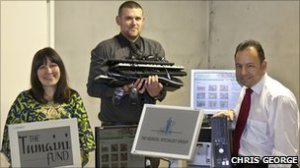Earlier I had contacted my brother’s friend who participated in a 10 week program in Uganda, creating sustainable business plans through an NGO. Asking for some advice, here are some of the points he suggested (shortened for this blog). Though we have heard alot of this before and are staying in mostly rural villages, it cannot hurt to hear advice from new people:
1. Don’t drink water that you have not personally watched being boiled. Exceptions can be made for *nice* restaurants or bottled water that you yourself break the seal on. Otherwise, stick to Coke products. It’s the one time in your life when Coke is healthier than water.
2. Stay in groups, don’t wear fancy clothes, wear pants (even though it’s summer, Americans are the only people who wear shorts in public past the age of 12), and don’t flash your wealth around. Common sense stuff. I kept my wallet in my front pocket and I was golden.
***3. Don’t give to the beggar children. It is heartbreaking, but for the sake of long-term consequences, you CAN’T give to beggars in Africa. Read my blog post about it here: http://uncultured.com/2008/06/25/the-beggar-children-of-main-street/ Send it to your colleagues if you can, because I’m very passionate about this point.
4. If two (or ten or fifty) weeks could solve Africa’s problems, we’d be done by now…You will run into locals who work very slowly, don’t understand the concepts you are trying to convey, or simply aren’t in it for the right reasons…Be a cynic early rather than be disappointed. Use it more as a learning opportunity than a service opportunity and Africa will be better in the long run, and you will have a better time.
5. You will also meet some absolutely amazing people. Talk to them, ask questions, and listen. Talk to your cab drivers, find out their stories. Talk to your waiters, ask about their family lives. You have to be careful talking to strangers (especially in Kenya – that place “can get a little rough” as Obi-Wan would say), but in safe opportunities, take advantage.





